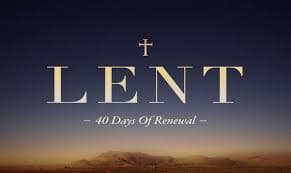Why Rejoice in a Temporary Dwelling for Seven Days?
Today is the first day of Sukkot – the Feast of Tabernacles in English. I have been thinking a lot about Sukkot lately, mainly because of how it was supposed to be observed versus how it is observed today. I am referring to the booths (sukkot in Hebrew) that people had to live in (Deuteronomy 16:15). According to scripture, people were supposed to leave their comfortable homes and go to the place that God would choose, which would be Jerusalem. While there is some discussion as to whether or not this was everyone or only male representatives for each family. The message is clear: unlike at Passover, whoever went up could not stay in a hotel or the spare room of relatives. They had to build their own booth or temporary dwelling and live in it for seven days. Then, every day they were to celebrate and rejoice. Furthermore, there were numerous offerings that had to be made (Numbers 28:12–28).
I’m not sure I would have liked living in a sukkah
I’ve been thinking a lot about what it must’ve been like. Can you imagine leaving your comfortable home, your kitchen, and all the comforts of everyday life – whatever they were back then? And you’re going to go and live for seven days in a quickly built temporary shelter? I have to be honest; that does not thrill me. I suppose there are some people who would have looked forward to it, but it sounds to me more like a great camping trip for the kids and not for the adults. (Hint, I do not like camping out – but that is another story.) However, God told Moses that this was to be a time for remembering all that He had done for the Israelites and how He carried them through the desert for 40 years. By extension, being observed by every generation gave it the same depth of meaning to the descendants of the Israelites: God took care of every need of my ancestors, He can take care of my every need too.
Furthermore, Sukkot was supposed to be a time for rejoicing. How was that done? We were supposed to pick beautiful branches and some nice fruit, and somehow use it to rejoice. Over time that became the waving of the Lulav — bringing a citron and the branches to the temple and waving them before the Lord — again for 7 days.
I won’t bore you with all of my thoughts about all of this, but I think what hits me is, yes, it was a time for rejoicing – but it wasn’t easy. I think for some people, yes, it was fun. But for other people, perhaps like me, maybe it was hard. Certainly, some people enjoyed waving their branches before God, but I think there were others who may have felt a bit awkward doing so but did it anyway because, well, that was the Law.
Going off topic – sort of
Did you know that there are some places in the New Testament that refer to our bodies as a “temporary dwelling”? In fact, in John 1, we are told that “The Word became flesh and dwelled for a time among us” (Jonh 1:14). That phrase “dwelled for a time” or “took up residence” literally means “dwelt in a tent”. In other words, Jesus dwelled with us temporarily in His body – a fragile and weak human vessel.
Peter referred to his own body as a temporary tent-like dwelling (1 Peter 1:13). In fact, in many places in the New Testament, our bodies are likened to a temporary dwelling, and we are waiting for a time when we will be clothed with a body just like that of our resurrected Lord.
Back to Sukkot – sort of
Fast forward. I’ve been studying First Thessalonians and I have been wondering if Paul was remembering Sukkot when he reminded the believers:
“Rejoice always! Pray constantly. Give thanks in everything, for this is God’s will for you in Christ Jesus.”
1 Thessalonians 5:16–18 HCSB
Did Paul remember a time when rejoicing and giving thanks were part of an uncomfortable feast steeped with meaning — but mandated by law? Yes, the meaning of Sukkot pointed to a great hope – a Godly reign and rule of Messian on earth – but still, celebration of the holiday was a command in the Law of Moses. Yet here is Paul telling us to do something more, and not just for 7 days – but for the rest of our lives. No matter how hard things would get… and don’t forget, the Thessalonians were suffering persecution and it seems some had even died.
What was the difference? I think it was the certainty of our hope. Our lives as we are living them right now are in temporary booths that will someday be changed in the twinkling of an eye. Our hope is something solid, we hope because we know God is faithful – He will do it. How can we not rejoice always? How can we not keep our hearts praying to our Lord with every thought – crying out to Him, and how can we not be thankful IN all circumstances – because He is with us and in us through the Holy Spirit?!
Sukkot joy
I think those who grumbled their way into Sukkot came out praising as they remembered who their God was. The feeble booths they lived in became places of prayer and dependence on God, and rejoicing anew in His protection as they found that the roof didn’t fall in, the walls stayed up, and maybe all those luxuries back home weren’t as necessary as they thought. And that worship in the temple as they held up the citron and waved the lulov? Thinking about the why… did they realize that their God was the good God who gave them beauty and variety in creation, the rain and fruit of the earth? He had done so and they could thank Him for that and what He yet would do.
Sukkot joy – personal application
Perhaps the reason I’ve been thinking so much about the booths of Sukkot is because my own “tabernacle” is not doing so well lately. Every day I need to trust the Lord for strength and motivation to accomplish what He wants me to do. Sometimes the winds blow in a door to my “sukkah” and sometimes they don’t. But I’ve been finding that my roof is not falling in, the walls remain firm, and some of the “luxuries” of my body really are that – luxuries. I can live without half of a lung. It looks like I am headed for surgery that will change my intestinal “plumbing.” I can focus on my temporary dwelling, or I can focus on our eternal hope. Paul said it best:
For our momentary light affliction is producing for us an absolutely incomparable eternal weight of glory.
2 Peter 4:17 HCSB
This is part of the joy of Sukkot. Remembering that God really has taken care of us and always will. Sukkot is a temporary affliction that urges me to remember how God has taken care of me up until now. I am reminded to make a sacrifice of praise – and in the process, the joy becomes real as I focus, not on my temporary dwelling, but on my eternal Lord and being with Him forever.
Interestingly, scriptures in both the Old and New Testaments have led Jews and Christians to agree that Sukkot will ultimately be celebrated together with all the nations when the Messiah reigns and rules on this earth in righteousness. And oh what a wonderful day that will be!
Enjoy this YouTube video of Phil Keaggy singing, What A Day.
Note: If you are reading this post via email, links and certain photos are only available by reading this post on my the hope-challenged.com website.
For your own study
There is so much more to Sukkot than what I’ve mentioned here. If you want to learn more about this special holiday, check the following passages out. If you know of ones I missed, leave a comment with the reference! You may also my post from 2020, A Safe Dwelling Place.
- Pre-Sukkot, clear defining of a Sukkah: Genesis 33:17
- The Law of Moses: Exodus 23:14-17, 34:22-23; Leviticus 23:34–43; Numbers 29:1-38; Deuteronomy 16:13–17
- History of celebrations in the Bible: Deuteronomy 31:9–13; 1 Kings 8:1–5; 1 Kings 12:25–27, 32–33; Ezra 3:1–5; Nehemiah 7:73–8:3; 8:13–18; 2 Chronicles 8:13
- Sukkot when Messiah rules: Zechariah 14:16–19;
- Scripture comparing God to a Sukkah: Psalm 18:12; Psalm 31:20
- Jesus declares that He is the Living Water in the Temple at Sukkot: John 7:37-39
- New Testament Usages of “Sukka” That we can learn from: Luke 16:9; John 1:14, Mark 9:2-13; Luke 9:28-36; Matthew 17:1-13; Hebrews 11:9;
- God will tabernacle (translated dwell) with us and we with him: Rev. 7:15, 21:3








